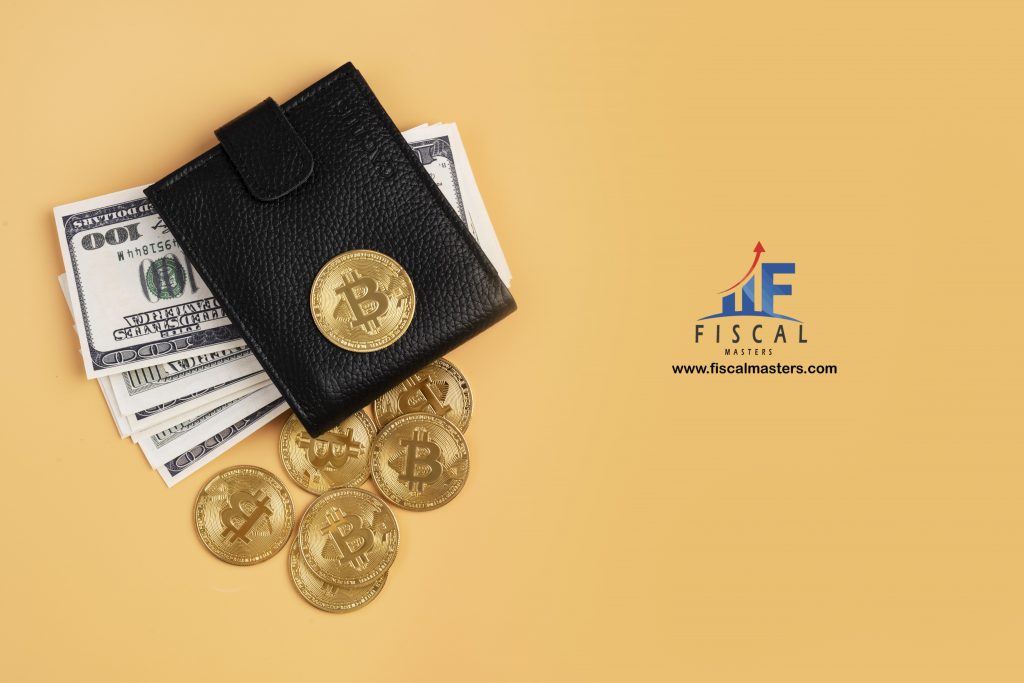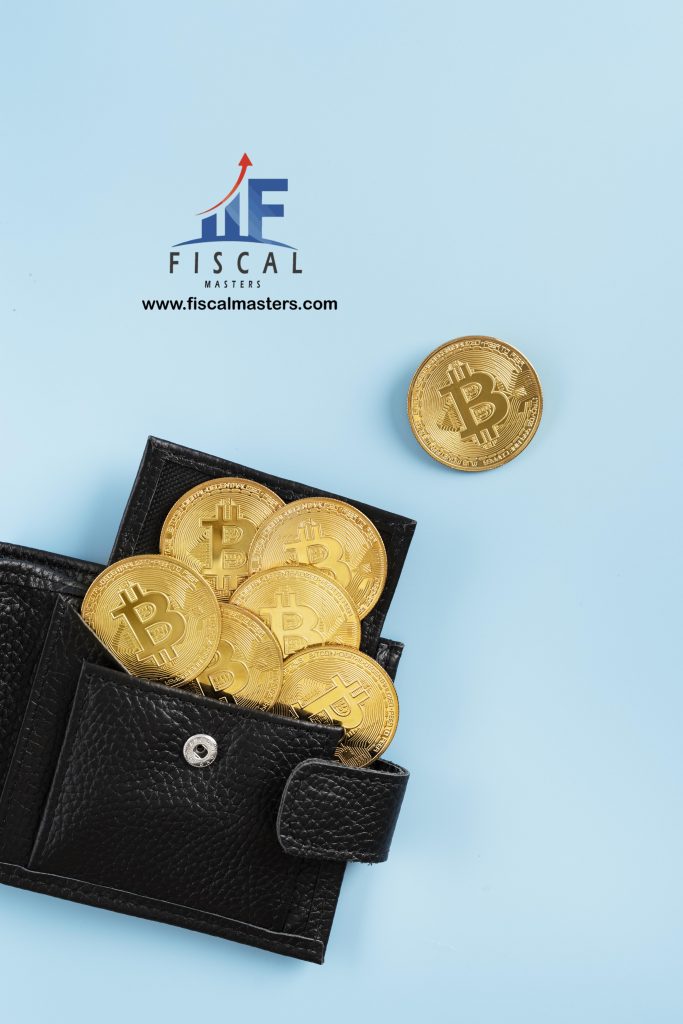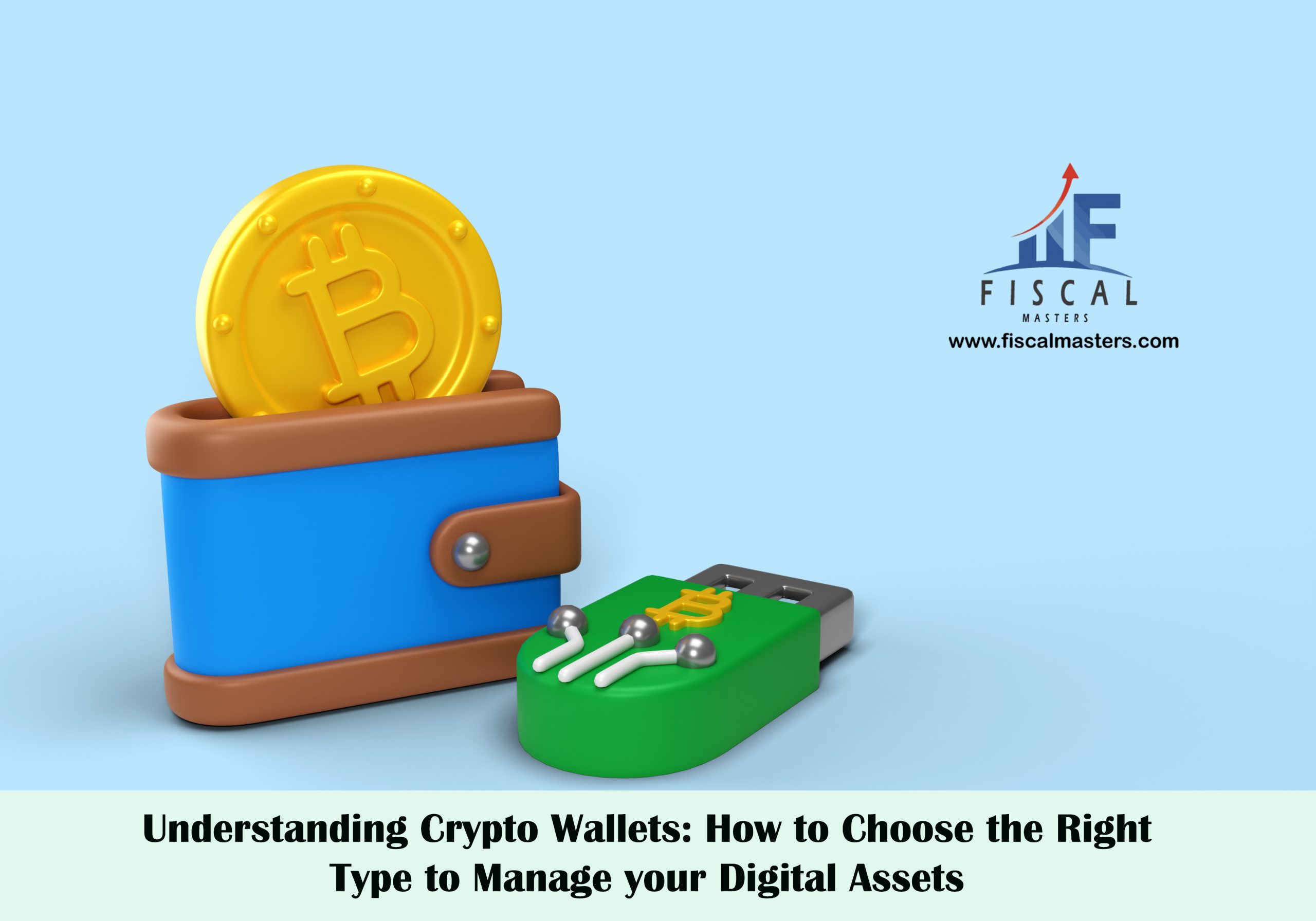Are you ready to take control of your digital wealth and explore the exciting world of cryptocurrencies? Then it’s time to understand the fundamental building block: crypto wallets. In the fast-paced world of cryptocurrencies, understanding how to store and manage your digital assets securely is crucial. Enter crypto wallets—the digital equivalent of a physical wallet that allows you to store, send, and receive cryptocurrencies. These digital tools serve as your personal gateway to managing and safeguarding your digital assets. With many options available, choosing the right type of crypto wallet for your needs can be confusing.
Read More: Prioritizing Debt Repayment: Strategies to Pay Off your Debt and Stay Afloat- July 2023
Have you ever wondered how to securely store and manage your digital assets in the ever-evolving landscape of cryptocurrencies? Whether you’re holding Bitcoin, Ethereum, or any other digital currency, a crypto wallet acts as your virtual vault, safeguarding your funds from potential threats.
What is a Bitcoin Wallet?

Have you ever wondered what a Bitcoin wallet is? It may sound perplexing at first, but let’s break it down in a way that’s easy to understand.
In essence, a Bitcoin wallet is a tool that enables you to send and receive bitcoins, the popular digital currency. However, unlike a traditional physical wallet that stores money, a Bitcoin wallet doesn’t store bitcoins. So, how does it work?
To grasp the concept, let’s draw a parallel with something you’re probably familiar with, a debit card. Imagine the debit card in your physical wallet right now. Similarly, a Bitcoin wallet provides access to your bitcoins, but without the physical aspect.
Here’s where it gets interesting. While a centralized entity like a bank manages a debit card, Bitcoin operates differently. It’s a decentralized digital currency. Consequently, Bitcoin wallets need to function uniquely compared to traditional bank accounts.
Now that you have a better understanding of Bitcoin wallets, you can confidently explore the world of cryptocurrencies. Remember to choose a crypto wallet that suits your needs, and always prioritize the safety of your private key.
Types of Crypto Wallet and Crypto Wallet Styles
Cryptocurrency wallets come in various types, each offering unique features and security levels to safeguard your digital assets.
Paper Wallets
Imagine writing down your crypto keys on paper and storing them in a secure spot, like a safe. These are known as paper wallets. While they provide a high level of security since they are stored offline, using your crypto becomes a bit more challenging. As digital currencies can only be used online, you must manually transfer your funds to an online wallet or exchange whenever you want to transact. They offer excellent protection against cyberattacks but require careful handling to prevent loss or damage.
Read More: Understanding Credit Scores: How to Improve and Maintain a Good Credit Score- July 2023
Software Wallet
One popular type is the software wallet, which can be installed on your computer or smartphone. It provides easy access to your funds and lets you make transactions on the go. They offer a convenient way to store, send, and receive cryptocurrencies like Bitcoin, Ethereum, or Litecoin. It’s like having your own virtual piggy bank for digital coins!
However, it’s essential to be aware of potential risks. Since software wallets are installed on computing devices, they are susceptible to viruses, malware, and phishing schemes. These sneaky threats can try to exploit vulnerabilities in the software and gain unauthorized access to your funds.
Hardware Wallets
On the other hand, hardware wallets offer enhanced security by storing your private keys offline on a physical device, protecting your crypto from online threats. For those seeking convenience, web wallets are accessible through a web browser, eliminating the need for downloads. However, they require trust in the wallet provider’s security measures.
Online Wallets
For those seeking a more user-friendly option, online wallets are worth considering. These wallets store your crypto keys in an app or other software, which is often protected by two-step encryption. Using an online wallet is as easy as managing your online bank account or using any payment system. Popular cryptocurrency exchanges like Coinbase offer online wallets, providing a simple way to get started in the crypto world.
As you navigate the world of cryptocurrencies, choosing a crypto wallet that aligns with your needs and priorities is essential. Assess the level of security and convenience you require, and remember to stay informed about the latest security practices to keep your digital assets safe and secure.
How does Mining for Bitcoins Work?

Imagine a bustling digital gold mine where powerful computers work tirelessly to unearth a new form of treasure—bitcoins. This captivating process, mining, is at the heart of how bitcoins are created, and transactions are verified in cryptocurrency.
Miners use powerful computers to solve these mathematical puzzles. Once a miner discovers the correct solution, they announce it to the network, and other miners verify its authenticity. This consensus process ensures that everyone agrees on the validity of the newly mined block.
The successful miner is rewarded with a predetermined number of bitcoins as an incentive for their efforts. Mining creates new bitcoins and secures the network by confirming and adding transactions to the blockchain—a decentralized ledger that records all Bitcoin transactions.
Digital Asset Management
Managing your digital assets goes beyond merely storing them securely. It involves keeping track of your investments, monitoring market trends, and staying updated with the latest developments in the cryptocurrency space. Here are a few tips for effective digital asset management:
Diversify your Portfolio
Invest in various cryptocurrencies to spread the risk and maximize potential returns.
Keep your Software Updated
Regularly update your wallet software to ensure it has the latest security features and bug fixes.
Enable Two-factor Authentication (2FA)
Use 2FA for an added layer of security, requiring both a password and a second verification method to access your wallet.
Choosing the Right Crypto Wallet
In the fast-paced world of cryptocurrencies, safeguarding your digital assets is paramount. One crucial step in securing your holdings is choosing the right crypto wallet. With numerous options available, selecting the most suitable wallet can be overwhelming.
Security: Protecting Your Cryptocurrencies
The first and foremost aspect to evaluate when choosing a crypto wallet is its security features. Look for wallets that employ strong encryption and multi-factor authentication, offering robust protection against hacking attempts. Hardware wallets, such as Ledger and Trezor, provide offline storage and are considered the most secure option.
Read More: Introduction to Cryptocurrency: The PROs and CONs Cryptocurrency Investing- June 2023
Reputation: Trusting the Wallet Provider
The reputation of a wallet maker holds significant weight because, let’s face it, no one wants to risk their hard-earned digital currency due to security flaws. Wallets, whether intentionally or unintentionally, can have vulnerabilities that put your assets at risk. That’s why it’s essential to ensure that the wallet you choose is trustworthy and reliable.
So, how can you check the reputation of a wallet maker? Well, one effective method is to seek out the opinions and experiences of other crypto enthusiasts.
Access to private keys: Owning your account
When choosing a wallet, one crucial aspect is whether it provides access to your private keys. Why are private keys so important? Well, they are essentially the keys to your kingdom in cryptocurrency.
Imagine your private keys as secret codes that unlock your Bitcoin treasure chest doors. These keys come in 12 or 24-word passphrases, randomly generated by the wallet.
Each Bitcoin address has its unique private key. If you hold the private key for a specific address, you hold complete control over the Bitcoin associated with it. Here’s the catch: if your wallet doesn’t grant you access to your private keys, you simply rely on the wallet provider to safeguard your funds.
Backup and Recovery Options: Protecting Against Data Loss

Data loss can be disastrous when it comes to cryptocurrencies. Therefore, select a wallet that provides robust backup and recovery options. Backup phrases or seed phrases are essential, as they allow you to restore your wallet in case of device loss or damage. Additionally, consider wallets that offer features like multi-signature support, which contributes to an extra layer of security and enables shared control over the funds.
Hardware vs. Software Wallets
Regarding safeguarding your precious cryptocurrencies, you have two popular options: hardware wallets and software wallets.
Hardware wallets store your private keys offline, away from the reach of potential hackers or malware. This isolation significantly reduces the risk of unauthorized access and makes hardware wallets highly secure. They typically require a physical confirmation, such as pressing a button on the device, to authorize transactions. However, the downside is that they can be a bit cumbersome and may come with a price tag.
On the other hand, software wallets offer a more convenient approach to managing your cryptocurrencies. These wallets come in the form of applications you install on your computer or mobile device. They offer accessibility and ease of use, allowing you to manage digital assets with a few clicks or taps. Software wallets can be categorized further into two types: hot wallets and cold wallets.
The choice between hardware and software wallets ultimately depends on your priorities. If security is your top concern, a hardware wallet offers the highest level of protection for your cryptocurrencies. However, if convenience and accessibility are more critical, a software wallet might be the better option.
Cold Wallets for Digital Assets
On the other hand, cold crypto wallets keep your Bitcoin private keys offline, providing an extra layer of security. Cold wallets can be hardware wallets or paper wallets. Hardware wallets store your private keys on a physical device, while paper wallets involve printing them on paper and storing them safely.
Hot Wallets and their Features
Hot crypto wallets are software wallets that are connected to the internet. They provide quick and convenient access to your bitcoins, making them suitable for frequent transactions. However, since they are online, hot wallets may be more susceptible to hacking and other cyber threats. Let’s take a closer look at the features and considerations of hot wallets.
Quick and Easy Transactions
Hot wallets are designed for those frequently engaging in cryptocurrency transactions. Whether buying goods online, sending funds to friends, or trading on an exchange, hot wallets provide a seamless experience.
Read More: Managing Personal Finances: Ten Tips for Money-Saving to Achieve your Financial Goals- June 2023
Multi-Platform Access
Many hot wallets are available as mobile applications for smartphones and tablets. This mobility enables you to carry your digital assets wherever you go.
User-Friendly Interfaces
Hot crypto wallets prioritize user experience, making them incredibly easy to use, even for beginners. They often come with intuitive interfaces, guiding you through sending, receiving, and managing your digital currencies.
Best Crypto Wallet for Beginners
For beginners, simplicity and ease of use are crucial factors. Here are a few popular wallets that cater to beginners:
Coinbase
Coinbase is a user-friendly online crypto wallet that supports a wide range of cryptocurrencies. It offers a simple interface and provides a seamless experience for buying, selling, and managing digital assets.
Exodus
Exodus is a software wallet known for its attractive user interface and intuitive design. It supports multiple cryptocurrencies and offers features like built-in exchange services.
Ledger Nano S
The Ledger Nano S is a hardware wallet that provides enhanced security for your digital assets. It supports many cryptocurrencies and offers a simple setup process, making it suitable for beginners.
Read More: 8 Best Crypto Wallets of July 2023
Trust Wallet
If you prefer managing your crypto on your mobile device, Trust Wallet is worth considering. It’s a mobile-based wallet available for both iOS and Android devices. Trust Wallet supports a broad range of cryptocurrencies and incorporates a clean and straightforward interface, making it ideal for beginners who value convenience.
Atomic Wallet
Atomic Wallet is known for its versatility and commitment to privacy. It allows you to manage numerous cryptocurrencies, including Bitcoin, Ethereum, etc. Atomic Wallet also integrates with decentralized exchanges, enabling you to trade directly within the wallet while maintaining control over your private keys.
Conclusion
Choosing the right crypto wallet is crucial for effectively managing your digital assets. As we explored different types of wallets, from software-based to hardware options, it’s evident that there is no one-size-fits-all solution. Your choice of a crypto wallet should be based on your circumstances, preferences, and the level of security you desire. By taking the time to understand the options available and considering your specific needs, you can confidently select the right wallet to protect and manage your valuable digital assets. Happy Bitcoin adventures!







Thank you for your sharing. I am worried that I lack creative ideas. It is your article that makes me full of hope. Thank you. But, I have a question, can you help me?
Your article helped me a lot, is there any more related content? Thanks!
Your point of view caught my eye and was very interesting. Thanks. I have a question for you.
Казино с выводом на Qiwi
Your point of view caught my eye and was very interesting. Thanks. I have a question for you.